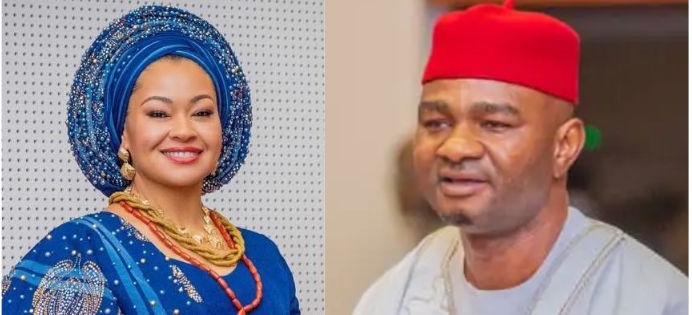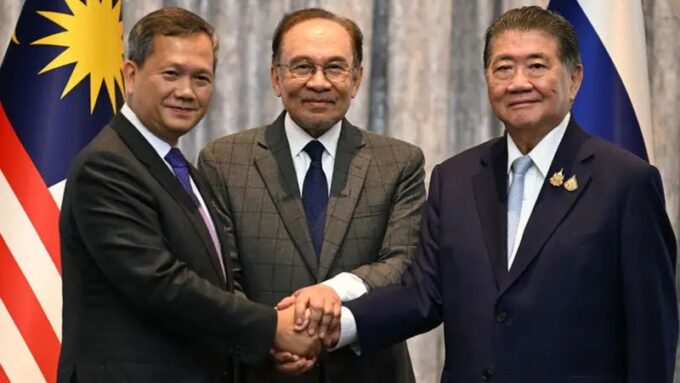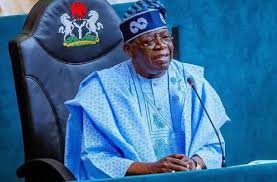News | Events | Digital PR | Advertising
Senator Natasha Akpoti-Uduaghan Sues Colleague for N5 Billion Over Alleged Defamatory Remarks on National Television

The suspended senator representing Kogi Central, Natasha Akpoti-Uduaghan, has taken legal action against her fellow senator, Onyekachi Nwaebonyi, who represents Ebonyi North Central Senatorial District, over alleged defamatory statements made during a televised interview. Akpoti-Uduaghan has filed a N5 billion lawsuit at the Federal Capital Territory High Court in Abuja, seeking damages and a declaration that the remarks were false and malicious.
The suit, filed through her lawyer, Michael Numa, centers on comments made by Nwaebonyi during an interview on Channels Television on March 6, 2025. According to the court documents, Nwaebonyi allegedly described Akpoti-Uduaghan as a “gold digger, habitual liar, and habitual blackmailer.” The plaintiff also claims that her colleague falsely stated she is the mother of six children from different men—a claim she vehemently denies.
In the suit, Akpoti-Uduaghan is asking the court to declare these statements as “false, malicious, and defamatory,” asserting that they have damaged her reputation and caused her emotional distress. She further argues that the allegations are not only baseless but were made with the intent to tarnish her public image and undermine her standing as a public servant.
The legal battle underscores the growing tensions between the two senators, who are both prominent figures within Nigeria’s political landscape. Akpoti-Uduaghan, a former gubernatorial candidate and advocate for good governance, has been vocal about issues affecting her constituency. Her decision to take the matter to court reflects her determination to clear her name and hold Nwaebonyi accountable for what she describes as an unjust attack on her character.
For his part, Nwaebonyi has yet to publicly respond to the lawsuit or provide clarification regarding the alleged remarks. However, the controversy has sparked widespread debate on social media, with some Nigerians calling for restraint and others urging accountability for public figures who make damaging statements.
This case raises important questions about the responsibilities of elected officials when engaging in public discourse. While freedom of speech is a fundamental right, it must be balanced with respect for the dignity and integrity of others—especially in high-profile settings like national television.
As the legal proceedings unfold, the outcome of this lawsuit could set a precedent for how defamation cases involving public figures are handled in Nigeria. For now, all eyes are on the Federal Capital Territory High Court to see how justice will be served in this high-stakes clash between two senators.
Explore more
Tiwa Savage Marks Triumphant Return with New Album “This One Is Personal” After Five-Year Hiatus
After a long wait, Nigerian music superstar and queen of Afrobeats, Tiwa...
Scientists Research Nigeria’s Okra, Maize, Four Other Crops During NASA’s Space Mission
International astronauts will research six indigenous Nigerian crops and seeds during the...
Tinubu appoints Omotenioye Majekodunmi as Director-General of National Council on Climate Change
President Bola Ahmed Tinubu has appointed Mrs. Omotenioye Majekodunmi as the new...
Tinubu Extends Tenure Of The Comptroller-General Of Customs By A Year
President Bola Tinubu has approved a one-year extension of the tenure of...












Leave a comment